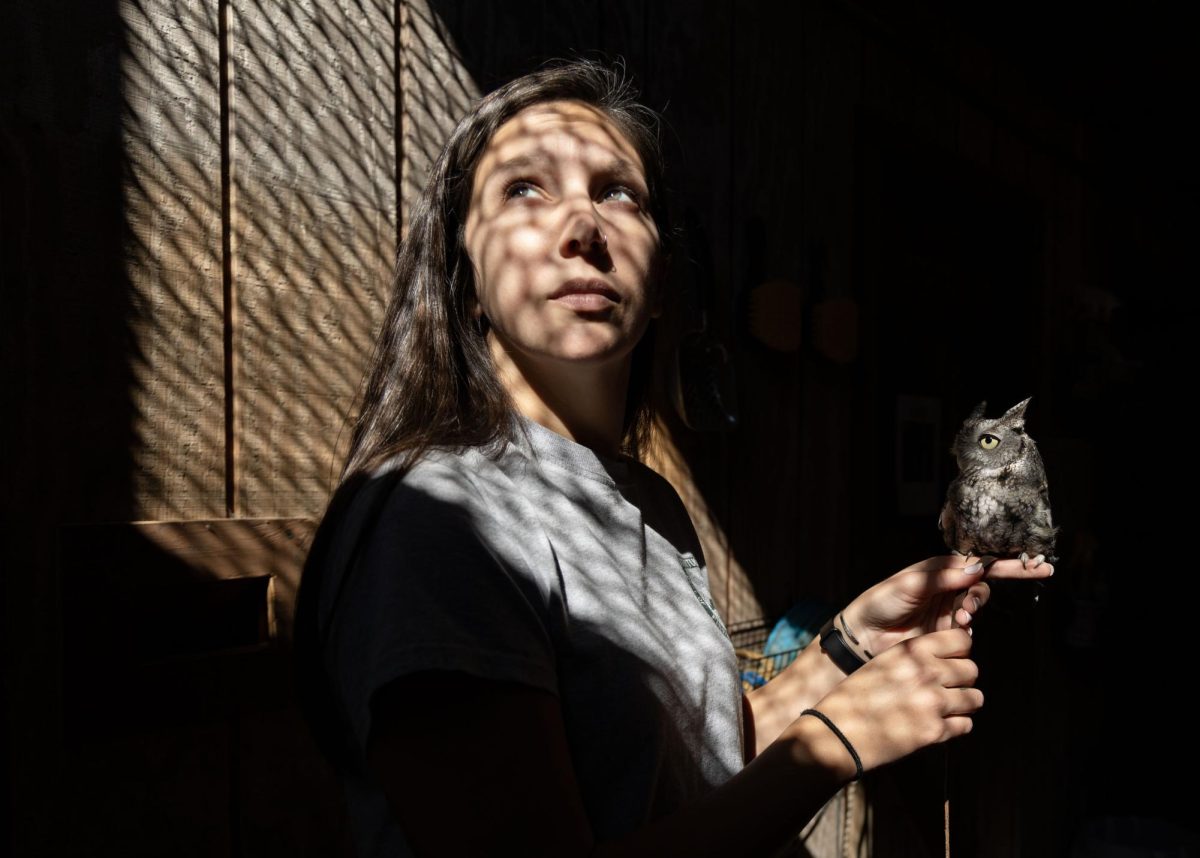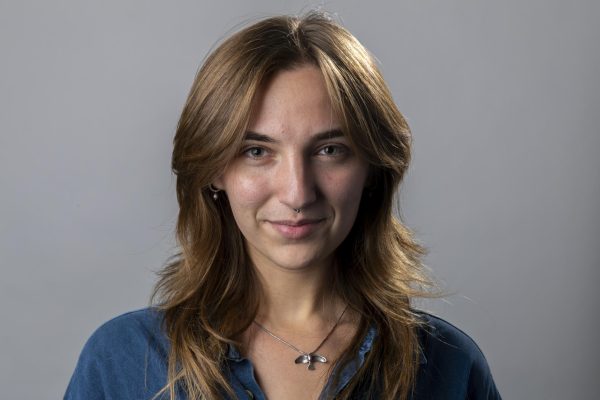“Conserving our ecosystems one raptor at a time” was produced during the 2023 Picture Kentucky Workshop in Frankfort, Kentucky, where students were randomly assigned subjects in the area to follow and complete a photo story over the course of four days.
Cassidy Cornett tells a story.
A person driving down the road throws a banana peel out the window. Before decomposing, the banana peel attracts mice to the side of the road. Raptors such as owls, falcons and hawks are attracted to the mice, but when raptors congregate at the side of the road, they can get injured or killed by cars passing by.
Why does it matter if there are fewer owls on earth? Cornett explained that owls are a form of free pest control. They eat many rodents that carry diseases. Cornett said that without them, those pests would be out of control, and humans would be more susceptible to the diseases that they transmit.
“This is detrimental to the ecosystem,” she said.
As the Salato Wildlife Education Center in Frankfort, Kentucky, welcomes 50,000 visitors a year, Cornett has an audience to achieve her goal of educating the public on the dire importance of conservation within our ecosystems.
Cornett is the raptor program coordinator and conservation educator at the Salato Center. Her passion for wildlife conservation and education shines in her interactions with guests of the center.
She works closely with raptors, building her expertise in avian care and training. Her love for training birds became a focal point, as she said she found immense satisfaction in this aspect of her work.
“I want the animals I work with to have the best life possible while educating as many people as possible about the importance of conservation,” Cornett said.
As a raptor program coordinator as well as a conservation educator, Cornett holds a unique position that bridges education and animal care. Her role involves caring for a collection of animals, primarily focusing on Kentucky’s native species.
She said she is dedicated to educating visitors about the importance of conserving these species and the ecosystems they inhabit.
“The best part of my job is training the birds to be ambassador animals and getting to share them with the public. I love seeing the wonder and excitement in a visitor’s expression when they get to see one of our Kentucky native species up close,” Cornett said.
Cornett works closely with an eastern screech owl that has one eye. She explained that this likely was an injury from being hit by a car.
“I always tell people we can avoid some of these incidents by not throwing trash or food out our car window,” Cornett said. “When we zoom out and look at the whole food chain, we can make better choices that benefit the entire ecosystem.”
Cornett emphasized that educating the public about native wildlife is crucial for conservation.
“I really think education is the first step in getting people to take action,” Cornett said.
She often highlights the connections between humans and their environment, illustrating the ripple effect of actions like littering and habitat destruction. Through her work, she said she aims to inspire visitors to take action and appreciate the intricate web of life surrounding them.
The center is run by the Kentucky Department of Fish and Wildlife Resources, whose mission is to conserve, enhance and protect Kentucky’s wildlife and habitat. This provides Cornett with a platform to make a meaningful impact.
In her role at the Salato Center, Cornett said she is not only nurturing the well-being of raptors but also the future of wildlife conservation and, in turn, our ecosystem.
“Most people say they have to go to work every day. I say I get to come to work. I truly love what I do,” Cornett said.



































































































































































William Kight • Nov 28, 2023 at 7:25 pm
Nice reporting. Great writing.